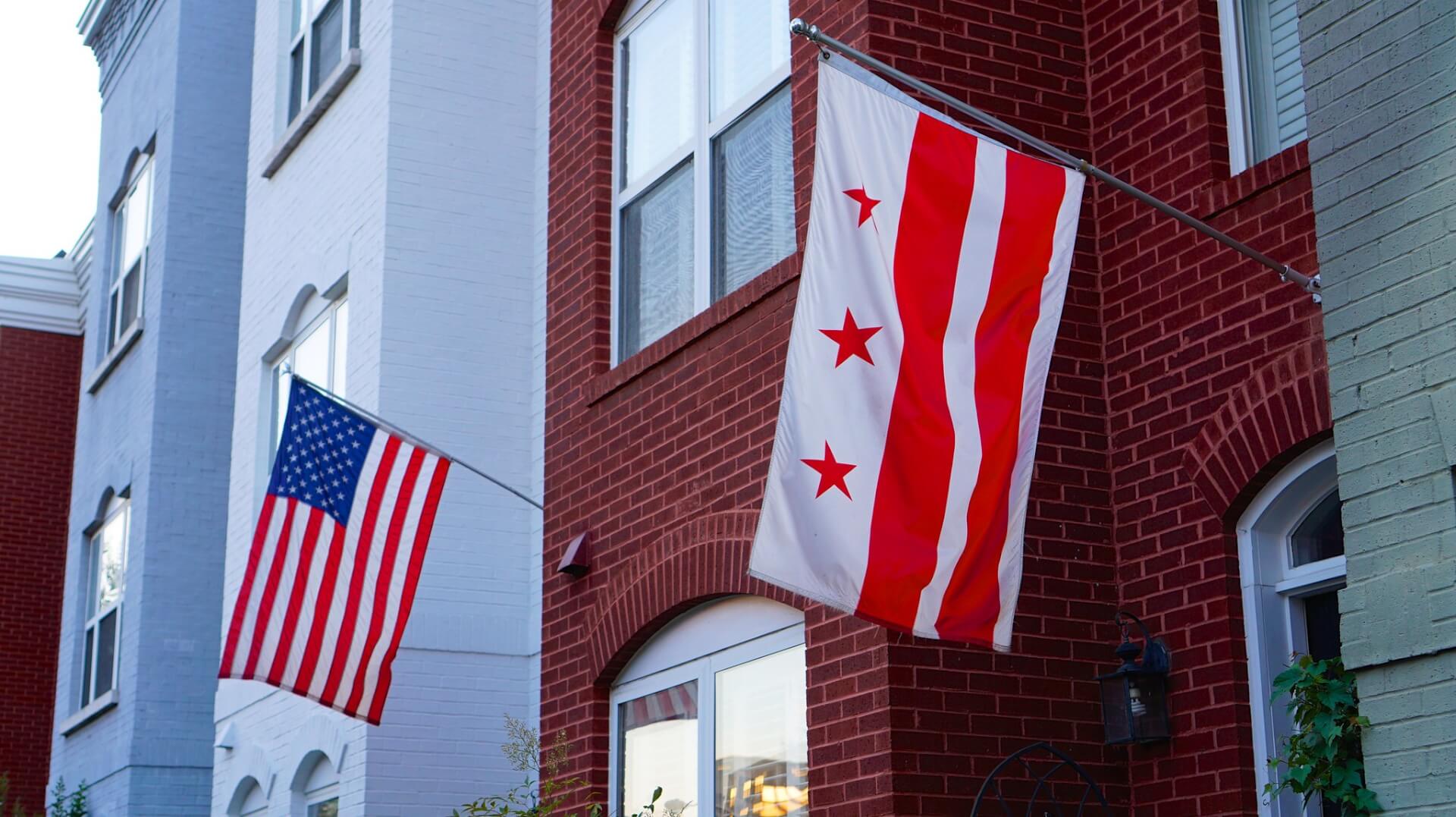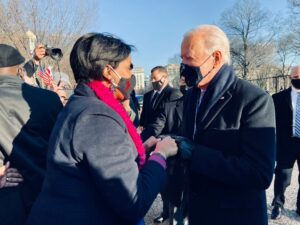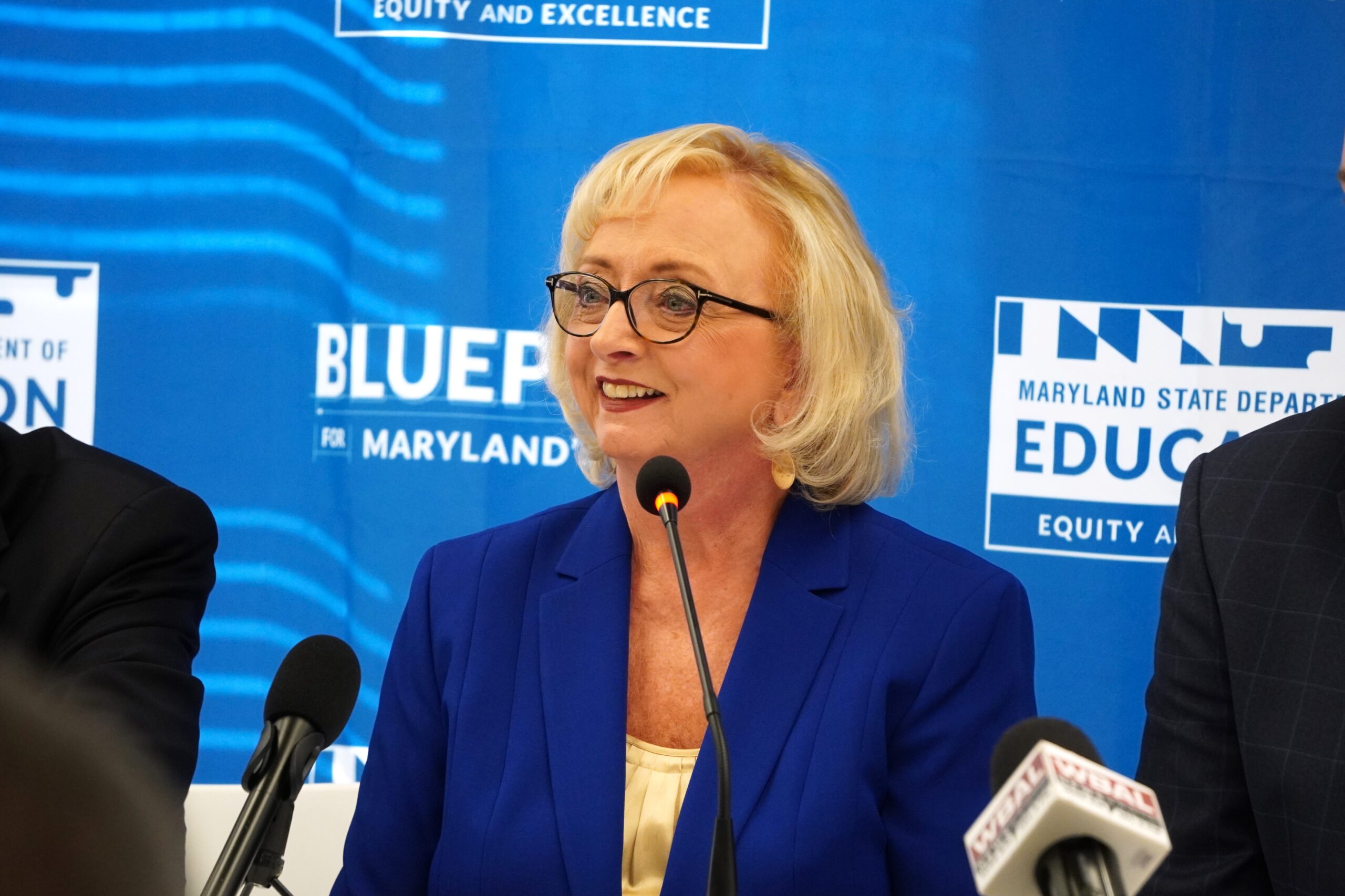Quest for D.C. Statehood Finds New Friends and Foes: Other States

Congress had yet to even schedule a hearing on a measure granting statehood to the District of Columbia when a panel of state lawmakers in Arizona voted in February to take a stand against D.C’s plea to become the 51st state.
From their committee room some 2,300 miles from the nation’s capital, members of Arizona’s House Government & Elections Committee weighed in on the brewing statehood debate with a resolution declaring formal opposition.
That Arizona measure — which has cleared one GOP-controlled chamber so far — is an example of how far-reaching the national debate over D.C.’s latest push for statehood has become, as the U.S. House nears votes on the question. Democrats are framing it as a voting rights issue, in a year when states are battling over access to the ballot box.
At least 13 states have introduced resolutions this year signaling a position on whether D.C. should become the 51st state. Eleven have resolutions filed in support, two in opposition, and one state has measures both supporting and opposing statehood, according to a tally by Students for D.C. Statehood.
In Arizona, Republicans offered similar arguments against the idea to those unfolding in congressional committee rooms amid the latest D.C. statehood campaign: They blasted the idea as a way for Democrats to gain seats from a bright-blue city with fewer residents than all but two states.
“It could be annexed by not one but two different states, Maryland and Virginia,” said Rep. Kevin Payne (R), adding: “Why not let the states adopt them into their states, or let the people move? If they want representation, move. That’s what they made Mayflower for.”
A Democratic legislator, Rep. Athena Salman, pushed back, describing the prospect of voting congressional representation for D.C.’s residents as “long past overdue.” She implored her colleagues in the last of the contiguous states to join the union to remember Arizona’s own difficult path to statehood.
“I believe we should be sending a resolution not saying that we oppose this group of Americans who now are taking up the Arizona spirit for statehood, but I believe that we should be embracing it and celebrating it and cheering it on,” Salman said.
No longer on the fringe
Before this year’s flurry of resolutions, only 10 states, including Maryland, had ever introduced legislation on the prospect of D.C. statehood, said Noah Wills, president of Students for D.C. Statehood. His group launched an initiative in 2020, seeking candidates to sign a pledge of support for D.C. becoming a state.
Starting in January, his group zeroed in on state legislatures. The first opposition measure popped up in Arizona not long after their grassroots efforts began, which Wills said offered a segue for pitching lawmakers on the concept.
He couldn’t find any previous state-level bills opposing D.C. statehood, so he said it signaled to him that the effort is “actually getting somewhere.”
“To have the people in our city adding their voices to the national conversation would help the entire country,” Wills said, adding: “We can’t do this without the people in the states.”
The latest push for D.C. statehood now enjoys mainstream support within the Democratic Party, a dramatic shift since a statehood bill first came up for a U.S. House vote in 1993. At that time, more than 100 Democrats opposed the idea.

D.C. Mayor Muriel Bowser (D) greeted President Joe Biden along the inaugural parade route in January. Muriel Bowser Twitter photo.
Fast-forward to today, when President Joe Biden has expressed his backing, and a bill to pave the way to statehood is expected to pass the U.S. House for the second time later this month.
The movement has been tied in to a broader focus by national Democrats on voting rights, who argue that it’s fundamentally undemocratic for the 700,000 residents of D.C. to lack a voice in Congress. Not only do residents not have representation in the Senate, Congress can strike down D.C.’s local laws.
“The disenfranchisement of Washingtonians is one of the remaining, glaring civil-rights and voting-rights issues of our time,” D.C. Mayor Muriel Bowser said in her testimony to House lawmakers last month.
The measure under consideration in the House has been put forth each year by D.C.’s non-voting representative, Democrat Eleanor Holmes Norton. It would shrink the federal district to a small complex of federal buildings, such as the Capitol and the White House, which would remain as the nation’s capital.
The remainder of what’s now D.C. — the areas where its residents live — would be split off to become a state, with the same congressional representation as other states.
Bowser not only testified to Congress in support of that proposal — her office too has taken the fight to the states. Part of the District’s $240,000 budget for statehood initiatives has been spent on digital ads in states with senators seen as potential swing votes, according to the Washington Post.
Racing against legislative deadlines
The statehood bill poised for a U.S. House committee vote Wednesday and a vote by the full chamber the following week faces no urgent deadline in the two-year congressional session.
But faced with shorter legislative sessions, advocates for state-level action are under a time crunch. Georgia and Kentucky have already adjourned this year’s sessions, ending the chances for resolutions to pass there.
A measure has lingered in Missouri, where it has failed to get a committee hearing in the GOP-controlled House. (At least one Republican state lawmaker has voted in support of a pro-statehood resolution, when the Hawaii Senate passed its version.)
In Maryland, a supportive resolution from Del. Gabriel Acevero (D-Montgomery) received a committee hearing but is unlikely to pass before the General Assembly is scheduled to adjourn next week. In Virginia, lawmakers have not introduced any resolutions weighing in on the statehood bid.
And in Maine, voting rights groups have urged U.S. Sen. Angus King, an independent who usually votes with Democrats, to co-sponsor statehood legislation in the Senate.
Minnesota joined the list of states considering pro-statehood resolutions this week. The measure’s sponsor, Rep. Mike Freiberg, a Democrat, said he was spurred to do so by a constituent who contacted him, requesting that he introduce a pro-statehood bill.
“To a certain extent, it’s symbolic, but it sends a message to the residents of D.C. and to members of Congress,” Freiberg said in a phone interview, describing D.C.’s status as a “relic.”
He said getting such a specific request from a constituent in his state likely reflects increased national debate over the question of granting statehood to D.C., and that he’s already heard from some national statehood advocates since introducing the measure.
But the odds there may be long as well this year, due to Minnesota’s committee deadlines.
There likely will be another chance for state legislatures to weigh in. While the congressional bill is poised to pass the House, there are not yet 51 votes in the Senate for a 51st state. Forty-two senators have signed on as co-sponsors; all are Democrats except for Sen. Bernie Sanders of Vermont, an independent who votes with Democrats.




 Creative Commons Attribution
Creative Commons Attribution